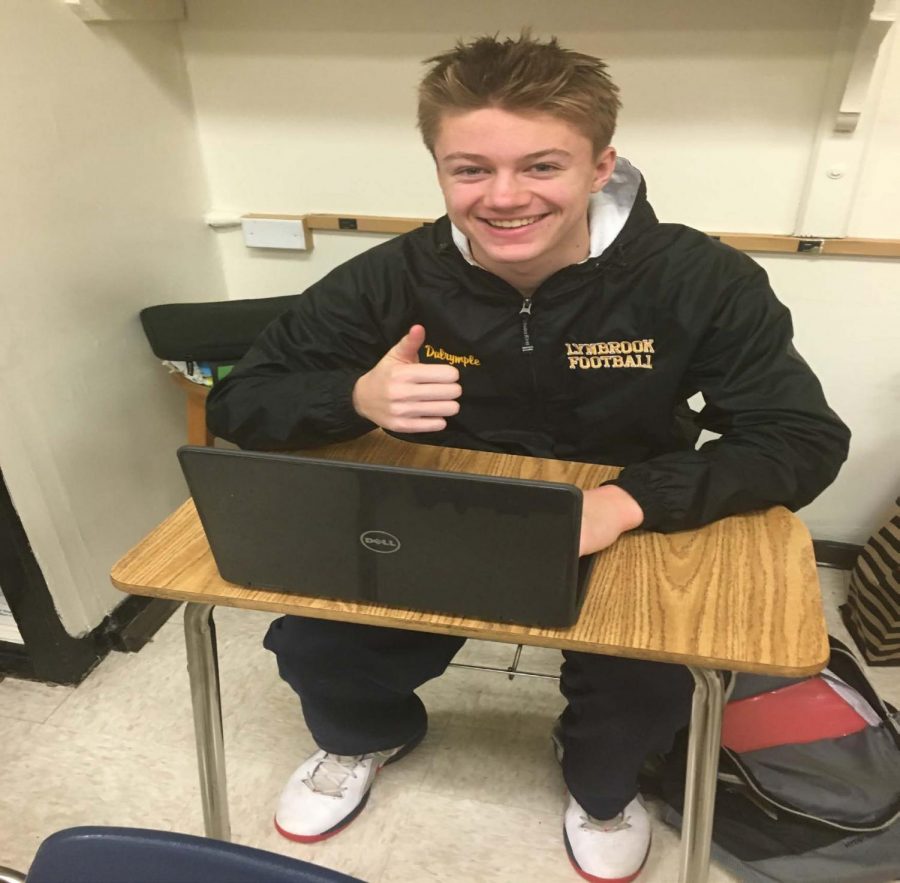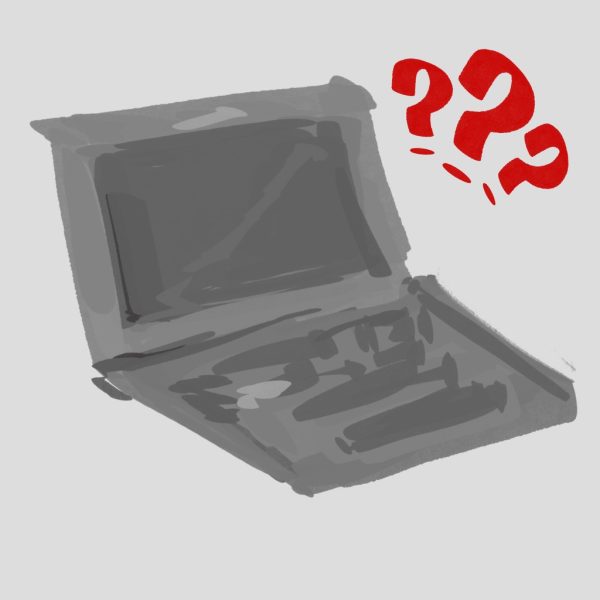Reaction: First Year with Tablets
Sophomore Dan Dalrymple using his tablet in class.
This school year is the first that freshmen and sophomore students have been provided and are required to use school issued tablets at the high school. As a sophomore member of the Class of 2020, I am experiencing the transition from pen and paper to tablets for the first time; however, for the freshmen, the tablets were nothing new as tablets were introduced to the Class of 2021 when they were in sixth grade. This is a big adjustment year for both the freshman and sophomore teachers as well as sophomore students at LHS.
One thing I can say for sure is that when the announcement was made last year, I was not pleased to hear that my grade would be using tablets. Most of my concerns, along with the concerns many of my classmates, have come to be true. Common complaints from my peers include losing all or part of a document and the computer “locking up” in the middle of an assignment. Brad Greismann had this to say: “I hate how the tablets malfunction for no reason.” It is difficult to determine if these malfunctions are due to actual tablet malfunction or operator error, but in either case, are the malfunctions the fault of the students? Perhaps more training at the beginning of the year would have helped avoid these kinds of malfunctions or at least minimized the impact of a malfunction.
Keeping organized and making sure documents are in the right place has been another issue that I along with many other sophomores have struggled with. Simple things like making sure a document is in the correct folder in OneNote can be something that many will forget, which can cause a lot of confusion later on. In hindsight, the few days current sophomores spent practicing on the tablets last year were probably not enough and left many confused and unprepared for working with the tablets early in the year.
Another factor to be explored is the amount of time spent in Room 102. For those who do not know, Room 102 is the room students will be directed to when their tablet falters. While the teachers in Room 102 are very helpful and attentive, a visit will cause a student to miss 10-15 minutes of class time at a minimum. As the students become more used to the tablets, the number of problems that cause a trip to Room 102 may become reduced, but, at least initially, this has been happening again and again. It is a frustrating process for both students who miss notes or an important discussion and for teachers who have to fill the students in on what they have missed. I have experienced this process first hand, and it is an annoyance, yet it has to happen for a student to be productive with his or her tablet.
Another part of the transition to tablets that I have noticed is the transition for teachers learning to teach in a new way. It has been very interesting to see teachers who have taught the same way for their whole careers transitioning to teaching using OneNote. Simply put, there is a learning curve for both students and teachers that may be too big for tablets to be effective in the first few months of the school year. Science Teacher Jeanette Meszaros had this to say regarding the tablets: “I like it in that it’s taken work away from me and made me more organized, but I feel students seem to be struggling to remember information without writing it down. It also can be a big distraction during class for the students.”
For the Class of 2020, next year will be the first that many of our teachers who only teach juniors and seniors will use the tablets to teach. Not only do we have to deal with a learning curve this year, but also as juniors some of our teachers will have to go through the same confusing process as we did this year. This will result in not only one but also two of our high school years spent working on a transition instead of learning with something that is comfortable for all parties involved.
Talking about the tablets without accepting their positives is unfair. The tablets do provide an interesting and new way to learn. The tablets also have made it much easier to study once a student figures out how to put all of his/her notes in one place. Essentially as hard as the tablet transition has been, there are definitely marked improvements such as organization and a more modern approach to learning compared the prior way of schooling. That being said, for years to come, there will be more transition years for several grades and many students and teachers who question whether the gains made by using tablets are justified with respect to the problems in transitioning to their use.
I am a sophomore at Lynbrook High School, and a contributor to Horizon. I enjoy watching and playing sports with friends.


















